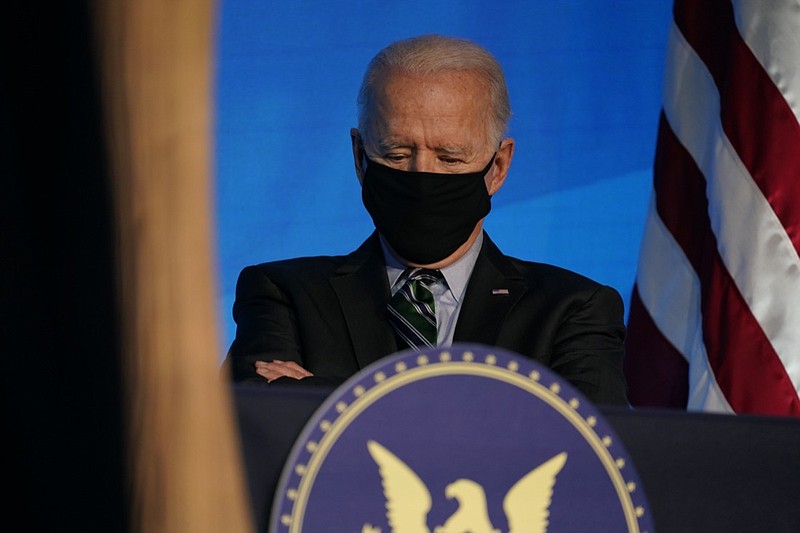As his first major legislative initiative, President-elect Joe Biden has proposed an ambitious COVID-19 relief package focused on two objectives: providing much needed aid to families most impacted, and accelerating delivery of the vaccines. The $1.9 trillion proposal will face opposition in a sharply divided Congress, but major elements enjoy bipartisan support and some variant of the initiative is likely to gain quick approval and could begin reaching Americans as soon as February.
Roughly half of Mr. Biden's plan involves direct aid to households most affected by the pandemic. Similar to the first COVID-19 bill passed last March, the Biden plan would offer $1,400 checks to individuals in households below a certain income threshold, but in this case would go to all dependents, including adults like college students. Combined with the $600 checks previously authorized in December, this would boost the total support payments to the $2,000 that Biden had previously proposed.
In addition, the proposal would extend emergency unemployment benefits, scheduled to expire in mid-March, through September. The supplemental unemployment insurance payment would be boosted from $300 to $400 per week. Biden's plan would also increase the child tax credit from $2,000 to $3,000 for 2021 with an additional $600 credit for children under 6 years old. And the expanded tax credit would be refundable for one year, meaning that it would be paid out to families whose income is too low to utilize the tax credit.
Biden's offering also renews the 14-week paid leave provision for caregivers and affected families from the original CARES act passed in March but excluded from the December bill.
The proposal deliberately concentrates the greatest assistance upon the strata of the economy that has suffered the most from the pandemic. For most higher-income families, lengthy job loss has not been an existential issue. According to Census Bureau data, the rate of employment among Americans earning over $60,000 per year actually increased by 1.2% over the period of the pandemic so far (February through December). However, employment in the lower brackets (below $27,000) remains 19% below the pre-COVID-19 level. According to the Center for Budget and Policy Priorities, one in four renters living with children have not caught up on past due rent, and one third of all adults reported difficulty covering household expenses in the past seven days.
America's 650 billionaires saw their wealth increase 36% in 2020, collectively gaining over $1 trillion. Meanwhile, 8 million Americans fell into poverty, the largest single-year increase since the government began keeping records in 1960.
Many of the hardest hit work in industries most severely impacted like hospitality and entertainment, or were employed by small businesses that were unable to survive. And while the first $2 trillion COVID-19 relief bill last March received high marks for the urgency with which it was enacted, design flaws allowed much of the benefit to flow to businesses and households who were least in need. The Biden plan directly addresses this disparity.
Most of the remainder of Biden's proposal goes to fund accelerated vaccine distribution, acquisition of adequate testing and protective equipment, and direct financial assistance to schools and state and local governments to defray the costs incurred in responding to the infestation. This is crucial since true recovery at all levels of the economy can only take root once the disease itself has been mitigated.
Some elements, like the proposed doubling of the federal minimum wage, are probably DOA and will get tossed from a bill. And some members of Congress appear to be rediscovering their long-dormant fiscal discipline after increasing the national debt by 36% over the past four years. But economists broadly agree that more must be done for those families most impacted who have not enjoyed the fruits of the stock market recovery. Glenn Hubbard, chief economist to former President George W. Bush, expressed general support of a big package given the obvious need: "one lesson from the financial crisis is that you want to be too careful about doing too little."
The survival of many hard-hit families may depend on how successfully a President Biden can work with his former colleagues in Congress. The stakes are high, but there is reason to be optimistic.
Christopher A. Hopkins, CFA, is a vice president and portfolio manager for Barnett & Co. in Chattanooga.

